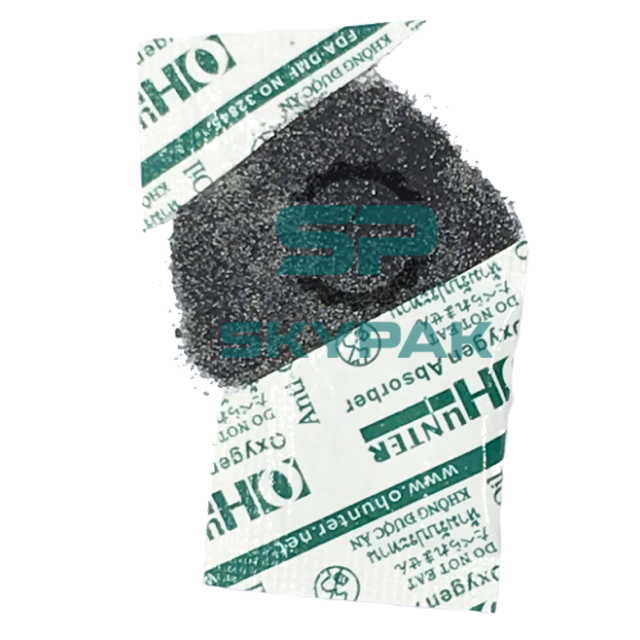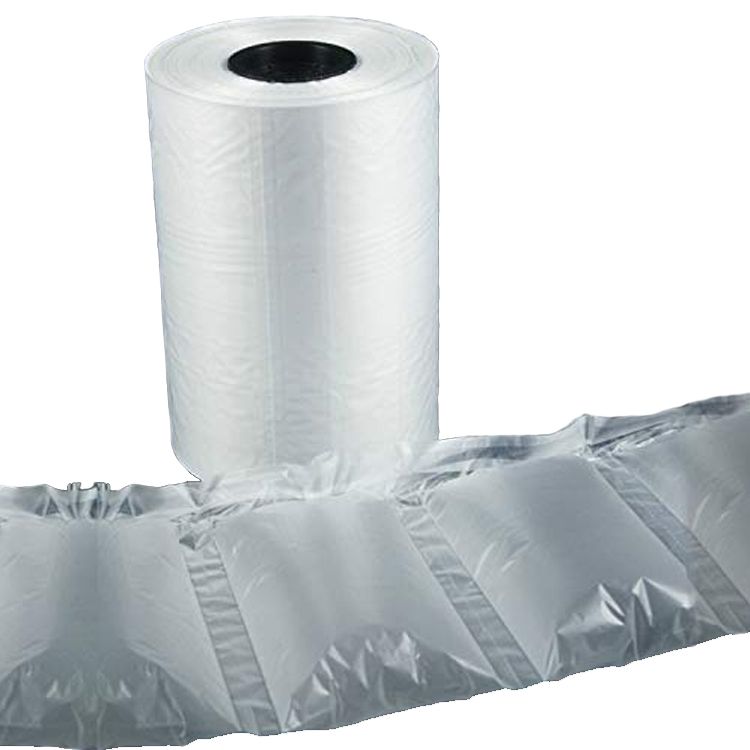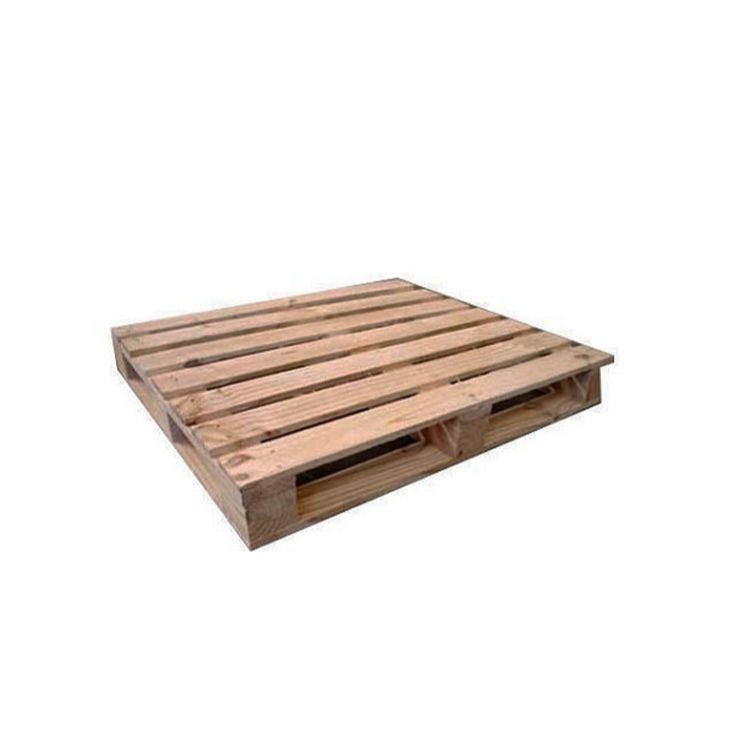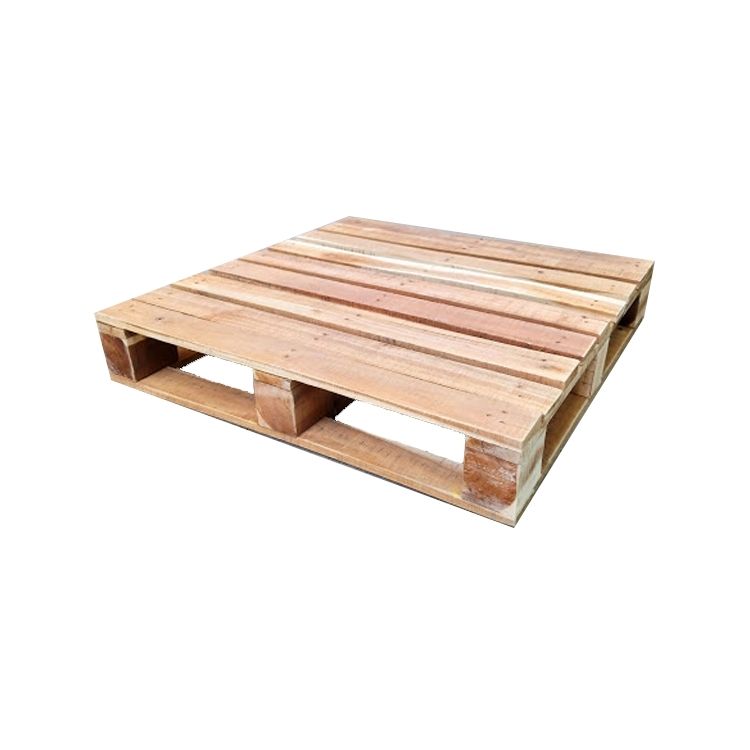EPAL stands for the European Pallet Association, established since 1991. Standard wooden pallets produced by EPAL are highly regarded for their flexibility and load-bearing capacity, making them very popular in automated machinery manufacturing and automated warehouse systems. To learn more about EPAL pallet, let’s read the following article together!
What are the characteristics of EPAL pallet?
Epal is an abbreviation for the European Pallet Association, known as the European Pallet Association. Established in 1991, EPAL focuses on the development and assurance of using standard wooden pallets to meet the cargo transportation needs across the European continent.
EPAL’s standard wooden pallet are carefully selected for their high quality and durability, making them suitable for automated production lines and automated warehouse systems. Using EPAL pallets provides a solution to ensure the quality of goods during operation and storage, minimizing the rate of cargo damage, saving costs, and enhancing business efficiency.

Advantages of EPAL Pallet Compared to Regular Pallet
EPAL pallet are one of the six types of pallets recognized by the International Organization for Standardization (ISO) worldwide. The notable differences between EPAL pallet and regular pallets can be identified through the following points:
- Standards: EPAL pallet are manufactured to European standards and undergo strict quality checks, including thorough pest eradication and wood treatment. In contrast, regular pallet often lack specific standards.
- Dimensions: EPAL pallet come in various sizes, with the most common being 800 x 1200 x 144mm. Regular pallets, on the other hand, come in a variety of sizes, lacking uniformity.
- Quality: EPAL pallet are crafted from high-quality wood, ensuring durability and excellent load-bearing capacity. Additionally, EPAL pallets are made from safe materials, posing no hazards to workers. Regular pallet can be made from various types of wood, with no guarantee of quality.
- Usage: EPAL pallet are favored in automated production lines, automated warehouse systems, and are widely used in international cargo transportation. In contrast, regular pallets are typically used in warehouses and during local cargo transportation.
Therefore, if you are considering pallet usage, choosing EPAL pallet can help you ensure the highest quality and efficiency in your operations.
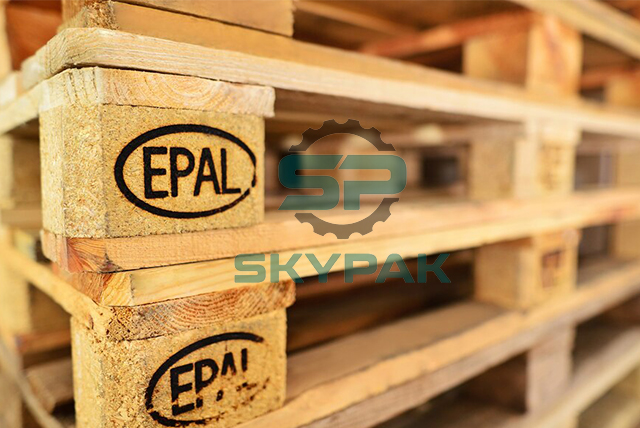
Quality Standards of EPAL Pallets
The European Pallet Association (EPAL) was established with the primary objective of ensuring the quality and durability of pallet products to meet the requirements of goods transportation and storage.
EPAL pallet are manufactured according to high-quality standards, including:
- Dimensions: EPAL pallet come in various sizes, but the most common size is 800x1200x144mm. This ensures uniformity and convenience in usage.
- Wood Quality: EPAL uses high-quality, kiln-dried spruce wood with moisture content below 22% to ensure durability and load-bearing capacity while also promoting environmental protection and recyclability.
- EPAL Standards: All standard EPAL pallet undergo a process of heat treatment and fumigation. The structure of the wood in its kiln-dried state allows it to carry various weight loads. EPAL pallet are known for their durability and resistance to various weather conditions. Specifically, EPAL pallets are treated according to ISPM 15 standards, which prevent the development of pests and diseases in wooden products, ensuring safety and compliance with international regulations.

With these stringent quality standards, EPAL pallet have become a reliable choice for many businesses in automated warehouse systems, improving efficiency and ensuring safety in their operational processes.














